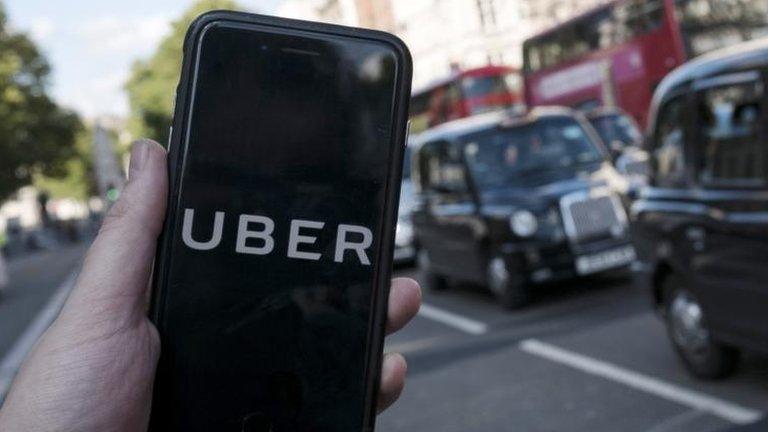Uber needs stronger regulations in Wales, says Skates
- Published
- comments
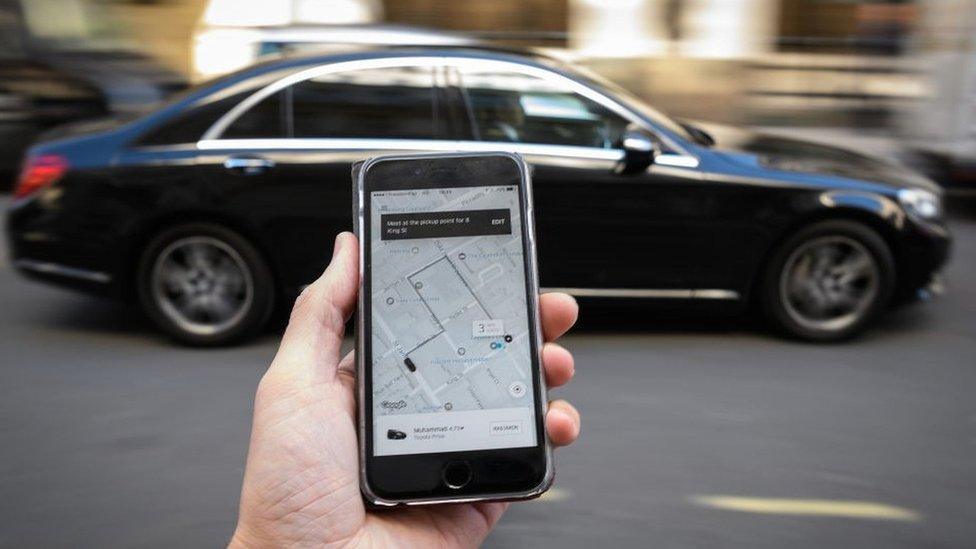
Concerns about taxi firm Uber have led to a call to strengthen standards governing the sector in Wales.
Transport Secretary Ken Skates said people should be able to rely on "a fair wage" regardless of their line of work.
It follows a number of controversies for the ride-hailing app, the latest of which was losing its licence in London.
A spokesman for Uber said drivers made an average fares of £15 per hour last year.
Welsh Government officials are weighing up a possible new Wales-based regime for taxis, ahead of powers being devolved in 2018.
Mr Skates said Uber, which operates in Cardiff and Newport, had been "innovative" but his concerns were "focused largely on employment practices".
He added: "I want to make sure that regardless of what sector you are employed in... you can rely on a secure environment in which to work, and you rely on a fair wage for your work.
"Through national standards, through our fair work agenda, I want to make sure that everybody employed as a taxi driver or a private hire vehicle driver is able to do their work in comfort for a decent salary."
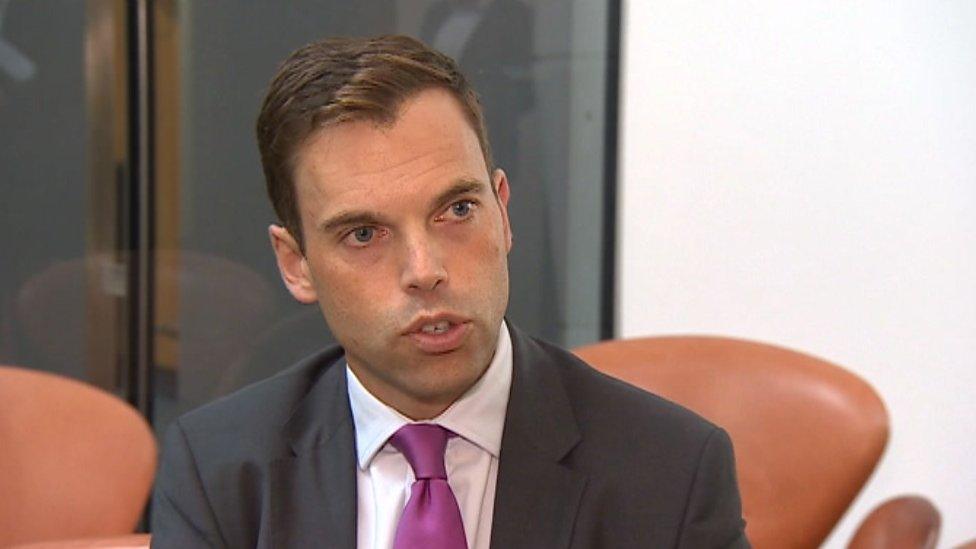
Ken Skates said he is concerned about employment practices at Uber
Mr Skates said there had not been any specific cases raised in Wales which would "warrant investigation".
But he added: "Given high profile cases in the national media I think it is important that we do strengthen standards to address some of the major concerns."
The Welsh Government wants a system where passengers know the quality of service and fares they can expect, while drivers can earn a living wage.
Currently taxis standards can differ from one local authority to another - but earlier this year officials consulted on introducing a system of national standards.
There are currently no firm proposals - a second consultation on what the standards may precisely say is expected next year.
Currently, hackney carriage taxi drivers are able to pick-up customers from taxi ranks, and have regulated fares, but fares for private hire vehicles, such as Uber, are not regulated.
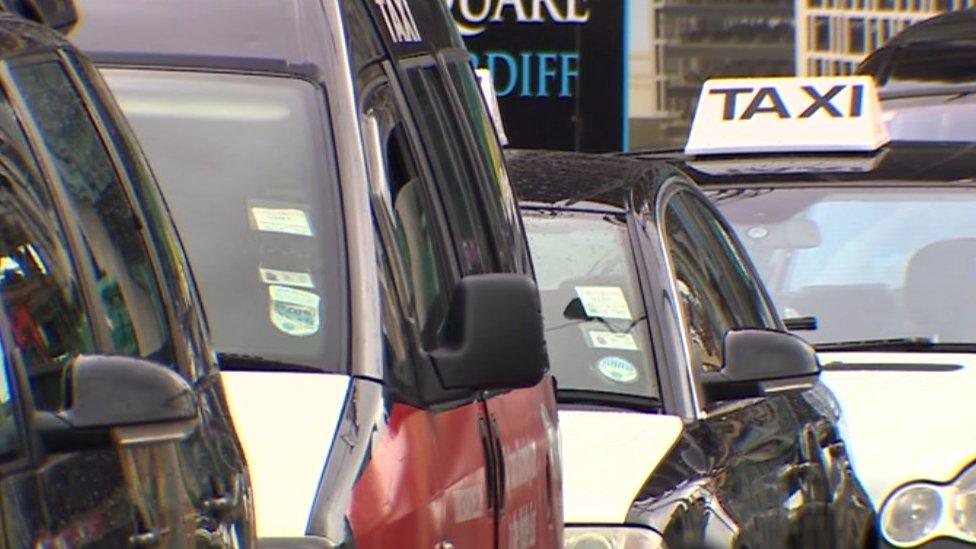
Mr Skates suggested implementing consistent fares for taxis and private hire vehicles.
Last year, GMB union won an employment tribunal case against Uber, where two drivers argued that they were employed by the company but did not have basic workers' rights.
Uber is appealing, saying its workers are self-employed.
It is also appealing against the loss of its London licence.
Mathab Khan, chairman of the Cardiff Hackney Carriage Association, said: "When there is no jobs for Uber they ply for fares in the busy areas. They do it every weekend. It is hugely affecting our income."
But Uber driver Martin Edwards praised the company, saying: "Even though you were flexible with other private hire firms, with Uber you can literally come and go as you please."
Uber said the "overwhelming majority" of drivers wanted to keep the freedom of being their own bosses.
A spokesman added: "We've recently invested in a number of changes, including discounted illness and injury cover, paid waiting time and the ability to cash out fares at any time.
"Uber abides by the same rules and regulations as all other private hire operators."
Welsh Conservative leader Andrew RT Davies claimed that regulating fares would be "extremely damaging for passengers if it restricted competition".
"Disruptive technology is supposed to drive down passenger fares and revolutionise the way the industry works," he said.
- Published5 October 2017

- Published27 September 2017
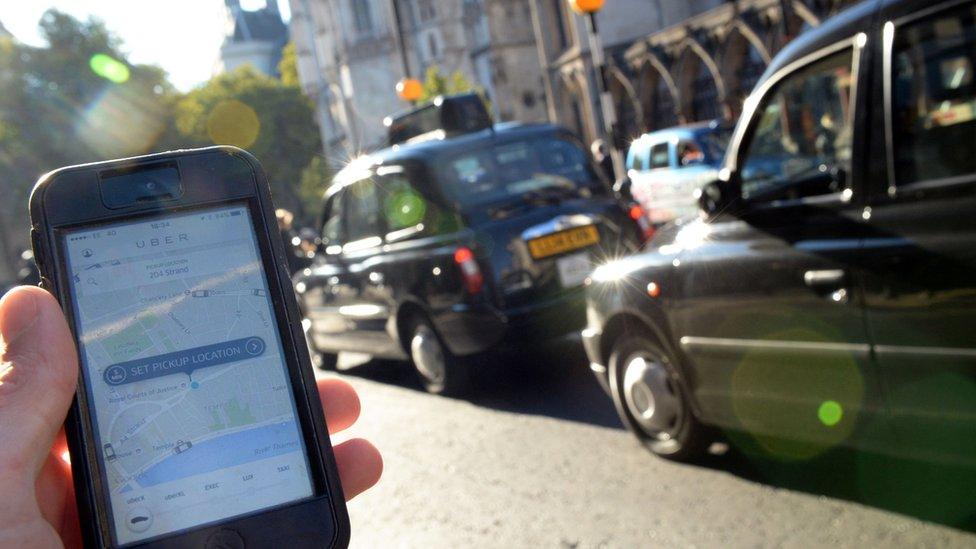
- Published28 October 2016
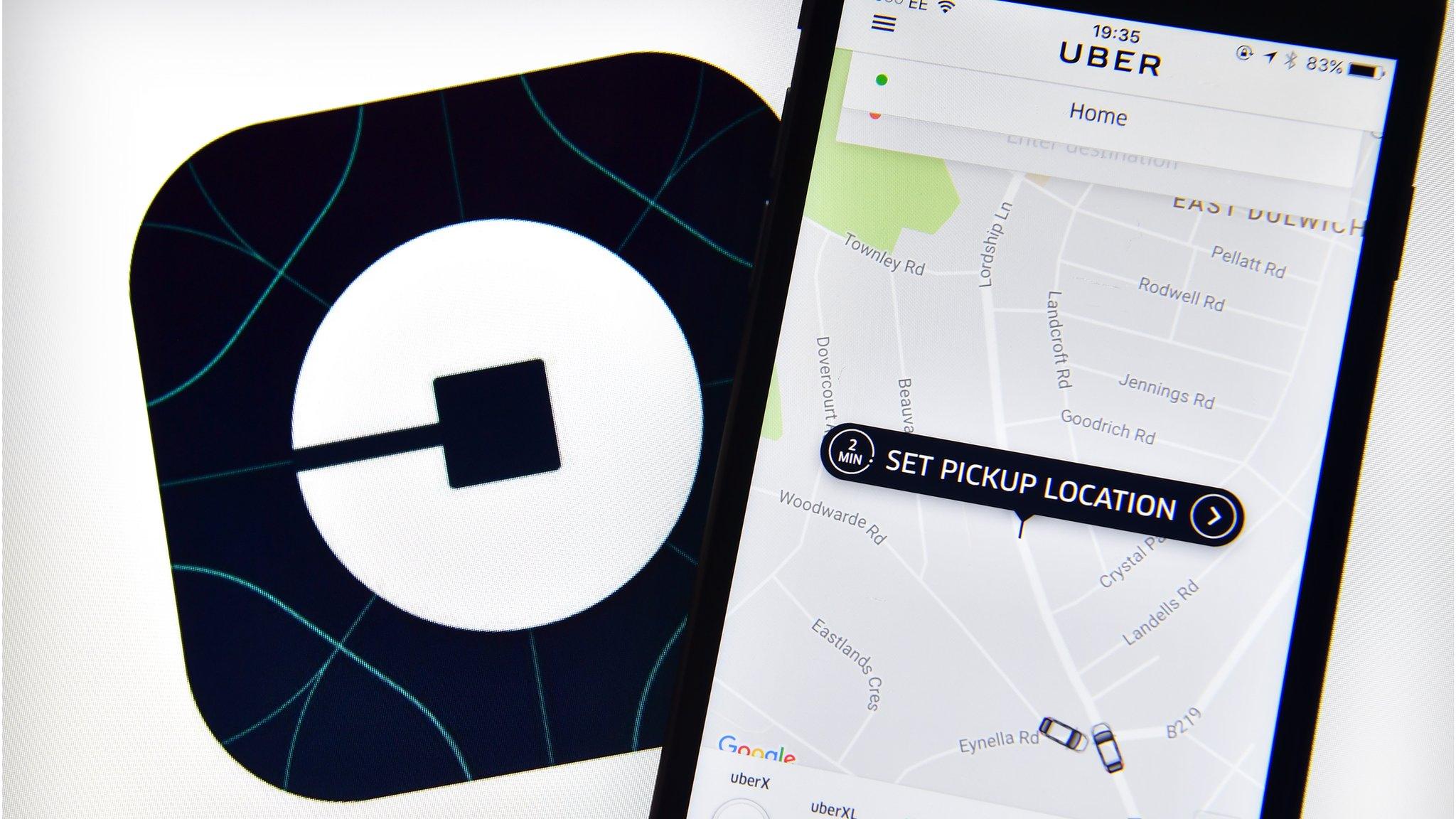
- Published13 October 2017
